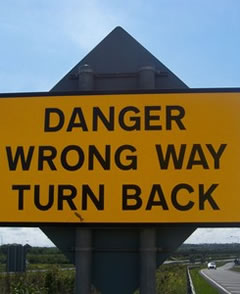From a talk by Daryl Sharp, publisher of Inner City Books
Jung’s ideas are apparently alive and kicking, so let me describe some of the dangers of becoming interested in them:
Danger # 1: First and foremost, there is the danger of intellectual appreciation that does nothing to enhance consciousness. The pursuit of information becomes more important than understanding your own experience. No one’s life can be explained by a theory, and no one has ever become conscious simply by believing in one.
Danger # 2: Second, there is the danger of applying Jung’s ideas to others and ignoring their relevance to oneself. For instance, it is relatively easy to see complexes at work in other people; it’s a life’s work to understand how and when they become active in oneself.
Danger # 3: Third, there is the constant danger of inflation. Reading Jung can be a heady experience. At last we see the light! Now we have the answers! Alas, the next time we fall in love or have a fight with our boss, we see that we are still prisoners of our own psychology.
Danger # 4: A fourth danger in getting hooked on Jung is to assume that what is true or right for oneself must also be healing and life-enhancing for everyone else. This is simple a particular manifestation of projection and the messiah complex. Jungian psychology saved my life but I do realize that others may find their truth in other ways. I like the poet Rilke’s comment: “Basically, it’s none of our business how somebody else manages to grow, if only we’re on the trail of the law of our own growth.”
Danger # 5: A fifth danger is not discriminating between Jung’s work and how it used or interpreted by others. For instance, Jung’s model of typology is the basis for several popular type tests that are widely used in ways Jung specifically warned against.
Danger # 6: A sixth danger is to imagine that Jungian psychology is only about neurosis, personal conflicts and relationship problems. There is also a spiritual dimension, the aspect that has been called soul-making. Soul happens when you ponder alone in the still of the night. Soul is what you are, as opposed to what you seem to be. Analytical psychology is not a religion, but the human longing for consciousness, together with the search for meaning, is essentially a religious activity.
Danger # 7: The seventh and final point on my list is the danger of lumping Jungian psychology in with the so-called New Age Movement. New Age is a convenient label invented by the media. It encompasses a potpourri of individual disciplines involved in the development of mind, spirit, and body. For the most part, New Age pursuits are about self-improvement – by which is meant becoming a better person – or esoteric techniques that promise deliverance from the woes of this world. To this end the New Age journals tout the use of pendulums, crystals, flower therapy and special kinds of food. Such concerns have nothing to do with psychology. The New Age Movement has also spawned a huge market for group experience. In the sixties and seventies there were Encounter Groups and not much else. Now there are groups for just about everything. I don’t doubt that the value in people sharing their traumatic experiences with others who have suffered in similar ways. That’s catharsis, and it has a place. But it’s not depth psychology. If there is any common denominator among those involved in New Age activities, it seems to be the search for a transformative experience. There’s nothing wrong with that. Unfortunately, people tend to mistake temporarily heightened awareness for rebirth, when they are merely inflated with an overdose of previously unconscious material. I don’t think I’m against the development of mind, spirit or body – I just take issue with some of the means to that end. I do acknowledge that what is written in New Age journals may lead some people to depth psychology in general, and to Jung in particular. However, in my experience this is more likely to happen in reaction to what they read, not because of it, especially if they are looking for more than facile answers to their problems.
THE ANTIDOTE to most of these dangers lies in the experience of personal analysis. You can appreciate the scope of Jung’s work, you can read everything he ever wrote, but the real opportunity offered by analytical psychology today only becomes manifest when you’re in analysis. That’s when Jung’s potentially healing message stops being merely an interesting idea and becomes an experiential reality.
***
